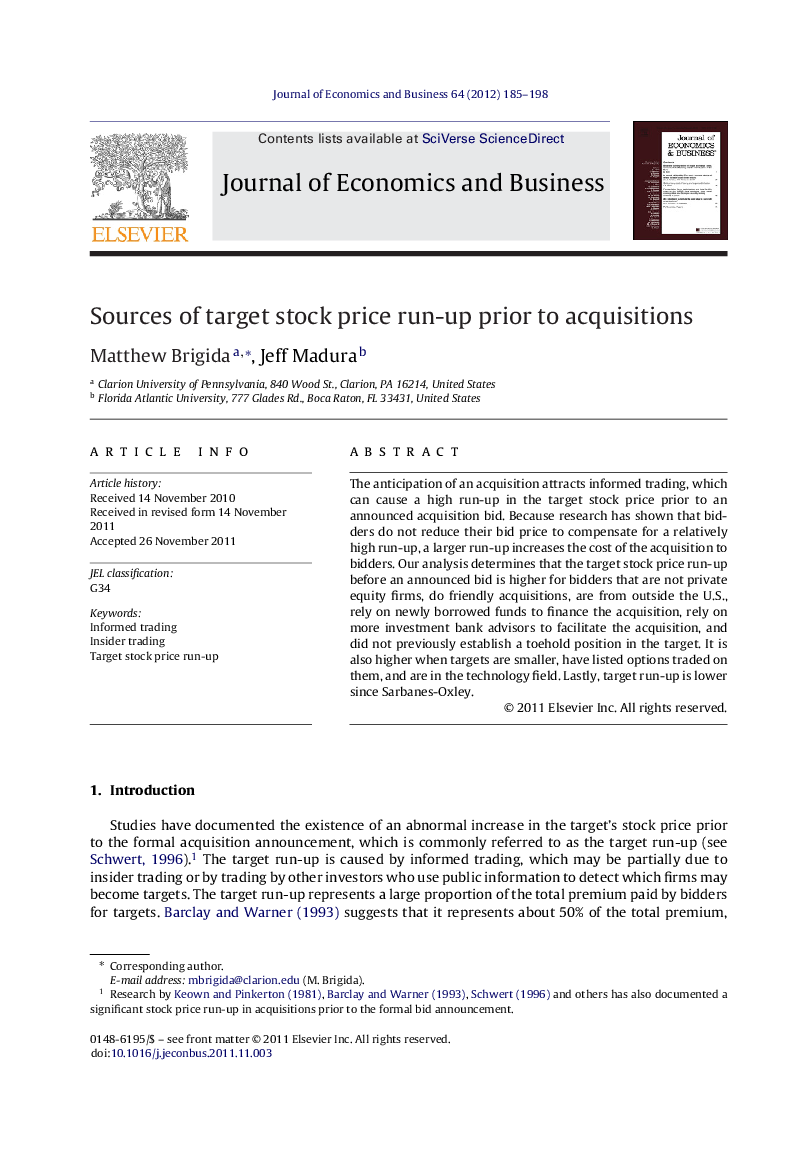| Article ID | Journal | Published Year | Pages | File Type |
|---|---|---|---|---|
| 958190 | Journal of Economics and Business | 2012 | 14 Pages |
The anticipation of an acquisition attracts informed trading, which can cause a high run-up in the target stock price prior to an announced acquisition bid. Because research has shown that bidders do not reduce their bid price to compensate for a relatively high run-up, a larger run-up increases the cost of the acquisition to bidders. Our analysis determines that the target stock price run-up before an announced bid is higher for bidders that are not private equity firms, do friendly acquisitions, are from outside the U.S., rely on newly borrowed funds to finance the acquisition, rely on more investment bank advisors to facilitate the acquisition, and did not previously establish a toehold position in the target. It is also higher when targets are smaller, have listed options traded on them, and are in the technology field. Lastly, target run-up is lower since Sarbanes-Oxley.
► Target run-up is higher for bidders that borrow, are foreign, do friendly acquisitions, and are not private equity firms. ► Target run-up is increasing in bidder advisors and decreasing in bidder toehold. ► Target run-up is higher when targets are smaller, have options traded on them, and are in the technology field. ► Target run-up is significantly lower since the Sarbanes-Oxley Act.
